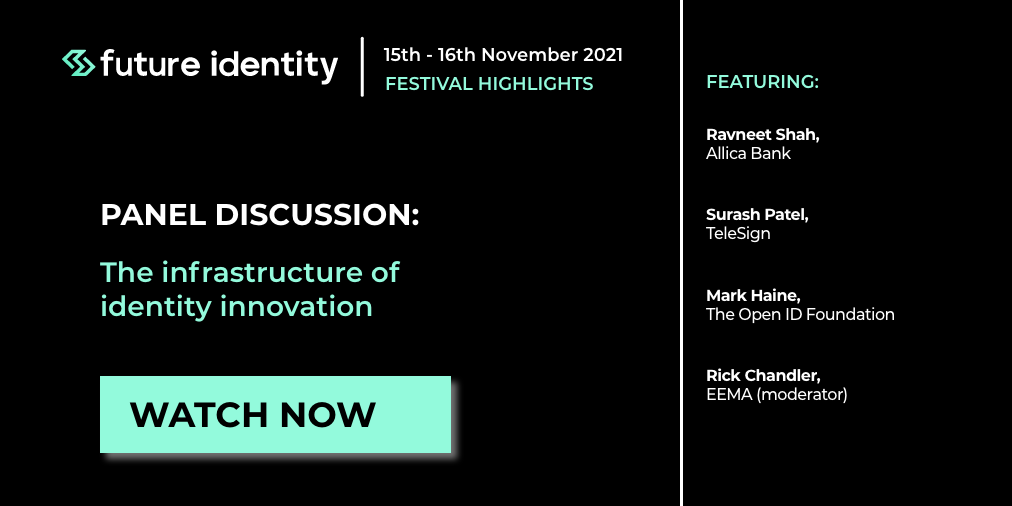
Identity today is a key security concern for businesses of all sizes, across all sectors.
By going digital with identity, businesses can offer their customers a more compelling experience, and gain a competitive edge. The challenge is to integrate innovative verification and authentication tools into existing architectures, without compromising security.
At the Future Identity and Fintech Talents festival, a panel of rockstar speakers explored how frameworks and standards act as the building blocks of a secure identity infrastructure. Without strong protections in place, businesses can be left vulnerable. Surash Patel, VP EMEA at TeleSign referenced research which shows 43% of identity fraud is a result of consumers being defrauded through identity processes. Clearly identity is a critical area for concern.
As a result, Ravneet Shah, VP at Allica Bank explained that security has become a key part of the process when developing new tools. “Security used to be the final part to be validated, but we have shifted to introduce threat modelling at the point of designing an infrastructure. As we build APIs, or a cloud architecture for example, we look at the authentication processes needed to protect those innovations.”
The panel also highlighted several initiatives in the identity standards space to address security. Mark Haine, Open ID Foundation commented on the work that has gone into developing a financial grade API profile, “OAuth provides a very clear set of rules to deliver the protocols of Open ID connect in a way that’s secure enough for financial services and other sensitive data to be handled.”
Watch the full panel, ‘The Infrastructure of Identity Innovation’ below.
Look out for upcoming the launch of Future Identity Finance 2022, taking place 28th April, in London.
For exclusive updates and topical content on the latest initiatives, technologies and concepts driving universally trusted identity, join the Future Identity Community today.











